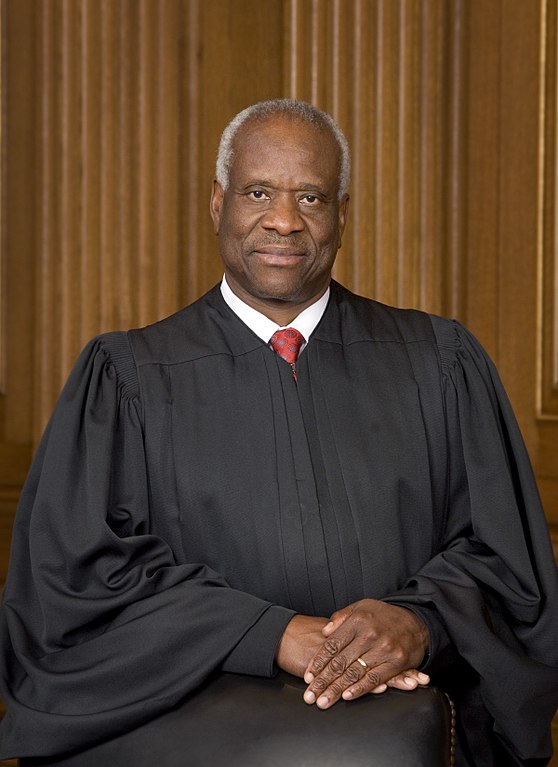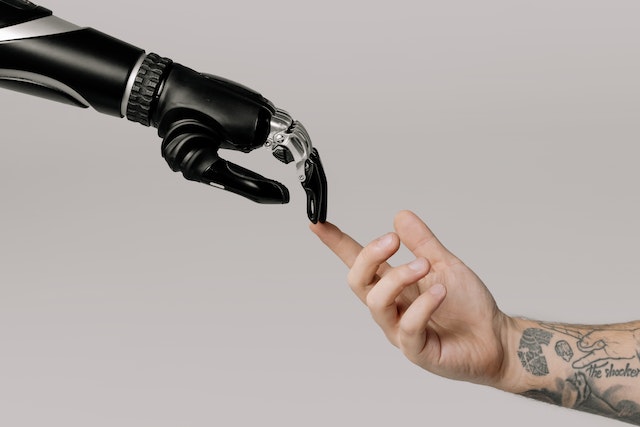Clarence Thomas has been the focus (yet again) of widespread media discontent. The two “big” reports are that 1) his wife is an active conservative advocate heavily involved in issues that will soon reach the Supreme Court, especially the 2020 election; and 2) that he received expensive personal gifts from a rich conservative friend which he didn’t disclose, and at the time he wasn’t required to disclose.
The story I think has multiple levels that have been bugging me—first, there’s the partisanship on display. Second, there’s the question of what the Supreme Court’s rules about disclosures should be. Third, there’s the question if Clarence Thomas acted unethically in some way. And fourth, there’s broader questions about the American system and the elites who inhabit it.
First, the obviously partisan nature of this story—there doesn’t seem to be any possible legal action against Thomas, such as impeachment, since Thomas did nothing illegal. Instead, this is cultural move to weaken the public’s confidence and image of a Supreme Court that has recently been the strongest obstacle to the left’s agenda. The outrage has come substantially from the left and left-leaning publications, and clearly has an eye to upcoming important cases that many fear the Court will side with conservatives on. Hence why these reports specifically target the most conservative and senior member of the Court. But all of the critiques of Thomas in this instance can also be applied to anyone in DC or Capitol Hill. They are criticisms that can be applied to the quasi-aristocracy of our political class in all its stripes, whether in the (tellingly less reported) push to ban insider trading for Congresspeople or questions of the origins of the Bidens’ wealth. To selectively apply criticisms of the global aristocracy to a specific sliver of that aristocracy—normally coming, no less, from rival factions of the same elite class—is simply partisan, plain and simple.
Second, there’s the changing rules of the Court that make this confusing. Thomas did something at a time when it was legal that, if done today, would be illegal—namely, not disclosing personal gifts. The rule change seems like a sensible enough update to the rules of disclosure to me. The biggest downside is essentially a story like this. Personal and probably-harmless gifts are used to leverage the appearance of corruption in the eyes of the public, when (again) there is no groundwork for legal action against Thomas or any member of the Court at this point.
Third, there’s the question of ethics beyond the strict letter of the law. Putting aside how rich it is to be having this conversation in the context of the mass media and the general American public, it is a fair question. Sure, Thomas didn’t do anything against the law; but it seems like a bad look, and surely we want our Justices to have the strictest personal ethics beyond what the law requires of them. The same can be asked of the controversy around Ginni Thomas, his wife, who is involved in conservative politics including Trump’s campaign to overturn the 2020 election.
So long as Thomas isn’t lying and he received personal gifts only I don’t see how he can be thought unethical. It would be unethical to exploit a loophole in the legal code to legally be influenced professionally by gifts and kickbacks. But Thomas says they are personal friends, and the gifts were personal gifts. They never discussed the Court, nor did Thomas ever see a case pertaining to his rich friend’s business interests. And I’m willing to believe him; in which case, he did nothing wrong legally nor ethically by accepting such gifts, anymore than I’d do wrong by accepting a Christmas seater from my mother-in-law. Sure, they were very nice gifts. But his friend is very rich. How expensive the sweater is doesn’t really matter.
Of course, Thomas could still have done wrong and let his personal relationships unjustly influence his rulings. Perhaps that was even the intention of his friends—to get him “in their pocket” in case the need arises for special treatment from the Court. But we have no evidence Thomas, in his heart-of-hearts, ever succumbed to greed, or said to himself “I’m going to rule in this man’s favor regardless of justice if I ever get the chance, because I like him so much.” Perhaps that was the motivation for the rule change, so that we could have more evidence should such a thing occur—but in this case there is none, and to seriously suggest so is unfair. And anyway, the risk of avarice is there for anyone in contact with money or power of whatsoever kind. My mother-in-law could be giving me that Christmas sweater just to seduce me for her nefarious purposes; but until I have evidence of that, believing so would not only be grossly unfair to my mother-in-law, but wouldn’t even be rationally justifiable.
But what about Ginni Thomas? She seems to be tied up in what is likely going before the Supreme Court at some future date. That situation certainly has more potential to be unethical. Getting heavily involved in issues that your husband will have to impartially rule on later can put him in a tricky situation.
But at least as far as Clarence Thomas’ righteousness is concerned, I still don’t see much of an issue as things stand right now. Ginni is her own person, and as citizen can basically act as she pleases politically within the bounds of legality. Clarence, then, only has an ethical duty insofar as her actions may impact his ability to rule. For example, if Ginni was withholding sex until he ruled a certain way; or if Clarence felt fearful what a negative ruling might do to their marriage; or if Ginni herself was a plaintiff or a lawyer to appear before the Court, then he would have an ethical duty to recuse himself from the specific case he felt he couldn’t judge impartially.
But just having a personal connection to the case doesn’t by itself mean you won’t be objective. As it is right now, Ginni is personally and financially supportive of Trump and the 2020 Stop the Steal movement. But I fail to see how the simple fact that your wife votes or endorses or donates a certain way restricts your objectivity. Can a Catholic not judge the Little Sisters of the Poor case because they have a personal connection to the religion at hand? Or can Clarence Thomas not judge a racial discrimination case because he’s black, and has been personally the victim of such discrimination? Personal connection indeed would inform his judgements, as it does for anyone’s judgement on anything. But the whole art of judging is to be objective as far as possible; and certainly we must trust our Justices to be able to determine objectively at least if they can be objective, if we want to trust that they can rule objectively in any sense. And particularly in a case like Clarence and Ginni Thomas, who now have been married for decades, all of which Clarence has been in the judiciary. They wouldn’t still be married if they haven’t worked out by now (in some way) how to keep their personal political viewpoints from competing.
If there is a Supreme Court case about the 2020 election and if Ginni is involved as a witness, lawyer, or plaintiff, and Clarence Thomas doesn’t recuse himself or take serious steps to avoid a real conflict of objectivity—then we can legitimately question if he’s being unethical. Until then, I just don’t see it.
Fourth (and most interesting I think) is the question of the larger critiques of American aristocracy that Clarence Thomas’ personal gifts raise. As said earlier, Thomas is being partisanly targeted for actions that apply to any member of high government; but is he thus being unfairly criticized? Or this outrage justified in its content, and only unfair in its double-standard?
It is uncomfortable for a nation founded on rejecting the Old World’s monarchy, but in its own way America has an aristocracy. It’s the vaguely defined social class of the rich and powerful (if those aren’t just synonyms) sometimes referenced as the “elites.” Supreme Court Justices are human beings. Congress people are roaches human beings. They have friends, marry, make children, collaborate with, eat with, and play with other human beings; and due to their proximity, similarity, and the isolation power brings, those other human beings will more often than not be rich and powerful themselves. The network of interconnected individuals, families, and organizations fill the halls of business and government, most especially in Washington, D.C. Comparatively isolated from and untouchable by the common citizen, enjoying wealth and status, they form a loose social group that in any other age would be called the nobility. American aristocracy is gained by appointment, not inheritance; but like the landed gentry, membership brings rewards.
Obviously, this is a little simplistic. I believe it’s still possible, both theoretically and (rarely) practically for someone to reach governmental power from outside of the established aristocracy (Clarence Thomas is, ironically, a great example of that). But the controversy of Thomas and his wife rubbing elbows with wealthy donors only proves the point–born an outsider, yes, but once in now firmly established within the aristocracy.
Aristocracy is neither good nor bad, strictly speaking. It is undemocratic, which we Americans reflexively think is wrong; but America is a republic, not a democracy, and aristocracy is not necessarily unrepublican. A republic selects a certain segment of the population to rule; and while this segment ideally is a slice of the “common man,” regularly recycled, in a worldwide empire and continental nation of 350 million people that is impossible. At best it becomes a “meritocracy,” where the electoral system produces the best and brightest to rule over the masses. But as noble as they are, that governmental class still, then, becomes a class to its own with power over the rest. This is at least seen in the political families and uber-wealthy that dominate the headlines for decades. The Pelosis, Bidens, Bushes, Clintons, Kennedys, Gates, (Trumps?), Buffetts, McConnells, Gingriches, Schumers–and especially the names of SCOTUS.
The trouble the Clarence Thomas scandal opens is that at some point in the aristocracy the personal vs. professional distinction ceases, because the person becomes the profession (and vice versa).
What would a personal but not professional gift to the King look like? The King has the government in his person, and the government just is the person of the King. Since his will is law, and his will is part of his person, any courting of his person is a courting of the law.
The ultra powerful in our system–and especially the Justices of the Supreme Court–are similar. Their decisions are so far reaching and so exclusively theirs that they serve as mini-kings. This is why, if we put aside our partisan reflexes, conservatives would feel icky at the Clarence Thomas news just as liberals would feel icky at the Hunter Biden stories. Because even though it is not illegal nor unethical to be so, Clarence Thomas’ friends (or Joe Biden’s son) have an influence over government that we know we never will.
This is simply inbuilt into human power structures. While previous societies simply accepted it for what it was and built power around such relationships, the American system is unique in aiming to push against it.
The elected aristocrats can be unelected. The Bushes, Clintons, and co. are relatively rare in Congress as far as numbers go. It’s hard to become and remain an aristocrat in a functionally democratic republic. (No commentary for now whether such uber-families show we’re not so functionally democratic anymore)
But the Supreme Court is designed to be aristocratic. Appointed for life, the Justices enjoy the closest to Old World nobility that America has to offer. And while they function as safeguards and checks, this is well and good–even necessary for their effectiveness.
But this is no longer. SCOTUS has made laws; has made and unmade politicians; and is the battleground for the culture war. As long as this is so, the American people are right to feel had when they hear their Justices galivanting in aristocratic opulence (even if perfectly ethical). Not because their Judges is not supposed to be so, but because their Legislators are not supposed to be so; and their Judges are now their Legislators.
Which brings us back to our beginning, and the partisan nature of the Clarence Thomas allegations. Ironically it is Justices like Thomas that are working to undo this legislative role of the Supreme Court, but in so doing are falling prey to the culture it created. The image of the Court erodes, and the public views it even more like just another Congress, only with lifelong representatives.
And that kind of aristocracy is untenable, even in an era of the Bushes, Clintons, et al.



